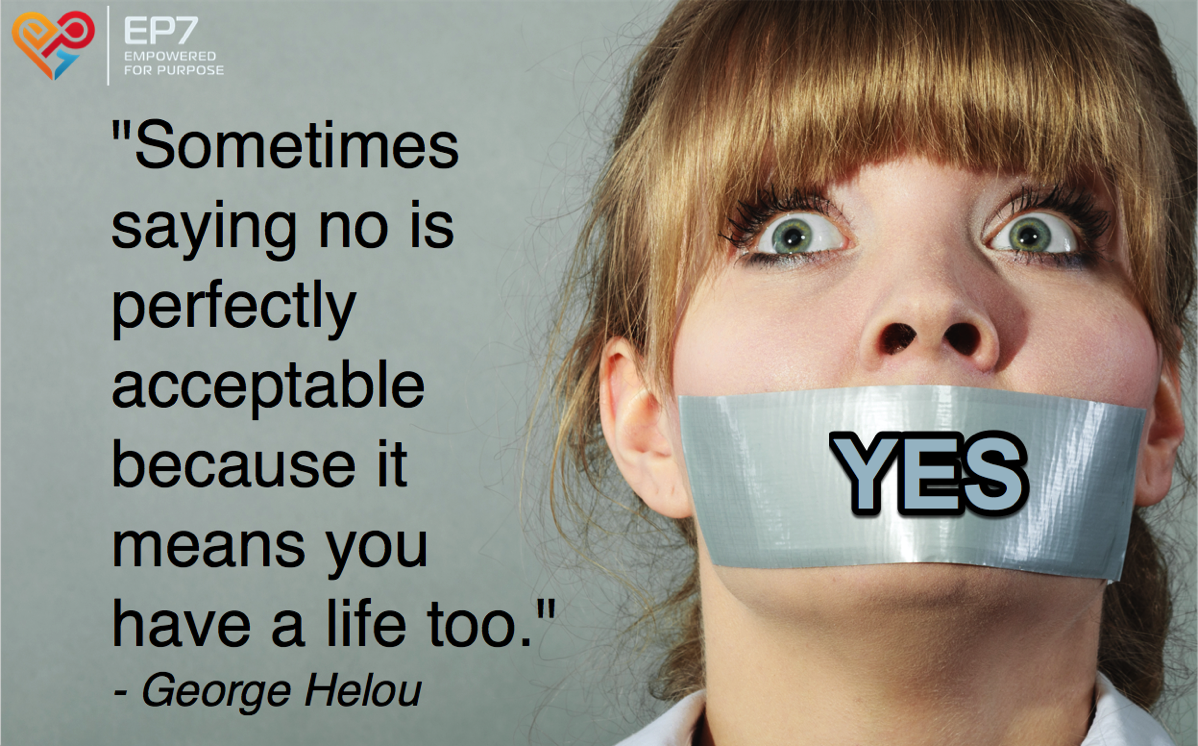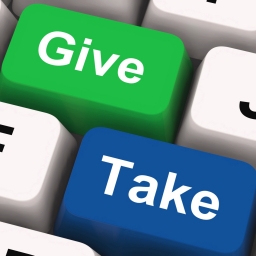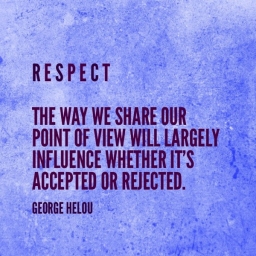 I was asked to put together some pointers regarding the benefits of saying no and how to say no for the West Australian newspaper.
I was asked to put together some pointers regarding the benefits of saying no and how to say no for the West Australian newspaper.
This is mainly because many of us do not like saying no and say yes way more often than we should. Feeling compelled to people-please at every opportunity is unsustainable. What is the point of feeling guilty for saying no and saying yes too often to the point of exhausting yourself, breaking promises and upsetting people?
So balancing saying yes with saying no is very important.
Here are some insights into why you should say NO: –
Life is going to give you as many reasons to say no as to say yes. You can’t have both hands on the steering wheel and expect to reach a destination if you only allow yourself to only turn right on the way there. You will only live your life going in circles and that will wear you out with little to no reward.
Saying no means you have a life too. It means you are allowed to be unavailable at times and although you can be flexible, it’s your call to decide when you can flex and how far. You are responsible if you break. You are responsible to deliver on your promises. It might seem obvious but it isn’t when our perspective is skewed by thinking that our value and success can only be determined by people’s approval.
Nobody should have to realise that you are taking on too much. It’s unnecessary to expect people to tune into us that deeply because most do not know how to. Everyone has so much on, hence it’s up to you to manage your workload and manage the expectations of life and people around you.
Saying no can stop a major cause of stress: letting people down that you care about and finding yourself lost and far away from achieving your life goals is going to directly hurt your emotional and physical wellbeing.
With a lot less stress in your life, you are going to be healthier and have better quality relationships that feel more equal and respectful. You will have enough time to achieve your most important tasks for the day. And who would have thought that saying no could be this beneficial!
However, it’s important to remember that if you take too much pride in saying no, you are more likely to miss the opportunities to find ways to say yes, where you won’t be compromised. There are always important opportunities to be there for others and where you can make a much needed difference that rewards you and attracts great outcomes in return. Love, support and companionship are some of the great benefits of being there for people.
It’s about striving for the balance; giving yourself and others the experience of yes and no. Rather than finding yourself stretched beyond your means, becoming resentful and depleted from endlessly feeling obliged to say yes or being too close-minded, stubborn and isolated from the habit of giving endless “no” responses.
So how do you say no when you may be afraid to let people down and feel like you are being selfish and rude? I know that’s why I hated saying no – I avoided saying no virtually all the time and it cost me dearly!
Here are 6 points to follow to help you on your nay-saying ways!
- Ask more questions to understand thoroughly what you are saying yes or no to.
- Tune into what is going in your life before you respond with a yes or a no.
- Be clear about the reasons you need to say no and be comfortable with your right to make that choice. Feel that freedom and allow yourself to be relaxed.
- Share the reasons you need to say no and be willing to share ideas that can help them achieve the outcome by another means that won’t include you at this time.
- Be honest and express your sincerity around wanting to be helpful so they feel validated and not blatantly neglected or rejected.
- If they refuse to understand and insist on judging you and feeling betrayed, express your disappointed that they feel that way, but allow them the right to hold on to that emotional state. It’s okay that you are being unpopular for saying no. It’s best to leave the problem of their need to control you with them.
If you lose friends because of saying no, they were not your friends. So nature will have a wonderful way of moving away those that are selfish and uncaring of your need to be balanced. Ironically, this leaves you with more time for those that respect and care for you and understand when you can’t be there for them.
Remember that saying no is because you have to be responsible for your happiness and manage your priorities in life. No-one feels and lives your life. So it’s up to you to be connected to what is going on in your life and be willing to make the decisions that will help achieve your goals. That includes being there for others with a healthy level of support by creating opportunities to also find the ways to say yes. The magic seems to be in achieving the balance.
Use your imagination to find ways to give as much as you can while not compromising your wellbeing. No0-one is perfect and whatever level of availability and resources you can provide with your pure intentions will have to be good enough, irrespective of whether people would prefer more from you. Why is this okay? It’s because we all have brains and access to resources. Others should not be depending on you to compensate for their lack of commitment and willingness to use their imagination towards solving their problems. Expecting you to be involved every time they want you means you are being an enabler that keeps them from realising their potential simply because someone kept saying yes. That person is no longer you, right? 🙂




